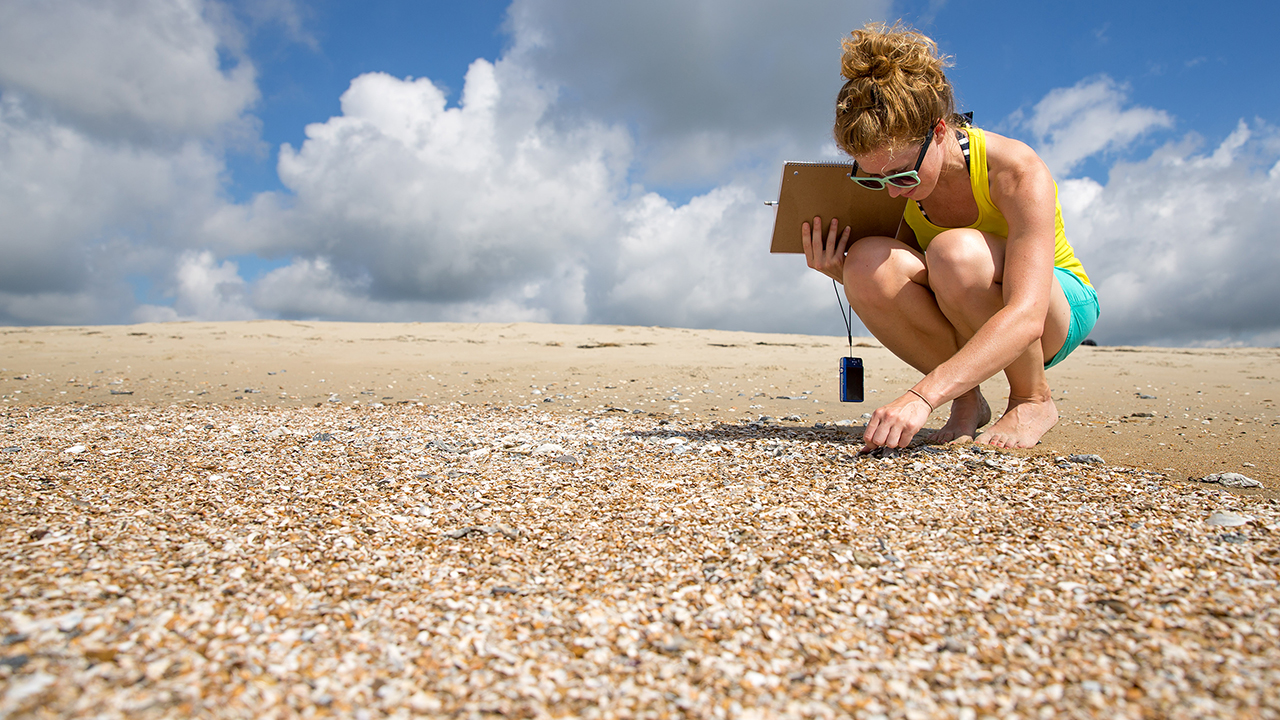
Dr. Adrienne Oakley, Marine Science Program Coordinator
Marine Science Degree
Transform your passion for marine science into an impactful career.
Quick Look
OFFERED AS:
Major, Minor
FORMAT:
In-Person
CREDITS REQUIRED:
Major (120), Minor (18)
If you love all things sand and sea, the marine science major at Kutztown University will transform your passion for the oceans into a marketable and highly rewarding career.
From undergraduate research opportunities and trips to marine environments surrounding the Chincoteague Bay Field Station to a strong science community and faculty-student mentoring, our marine science degree offers a hands-on, lab and field-based education unlike other land-locked marine science programs.
So, are you ready to dive into the science behind whale migrations, coastal environmental change, ocean acidification and so much more?
Why Earn a Marine Science Degree in Pennsylvania?
You might be wondering why you should apply to Kutztown University for a marine science degree since we’re in a land-locked state. Well, unlike many schools located along the coast, KU’s marine science degree is solely focused on undergraduate education.
In fact, KU is one of the few schools in the country (only one of two in the Pennsylvania State System of Higher Education) that offers a Bachelor of Science degree in Marine Science.
All our marine science classes and labs are taught by experienced professors, and all our research opportunities, paid lab technician and research assistant positions, go to our undergraduate students.
As a student, you'll be immersed in the hands-on learning environmental of the Chincoteague Bay Field Station (CBFS).
Plus, our tuition, even out of state, is less expensive than that of most coastal schools.
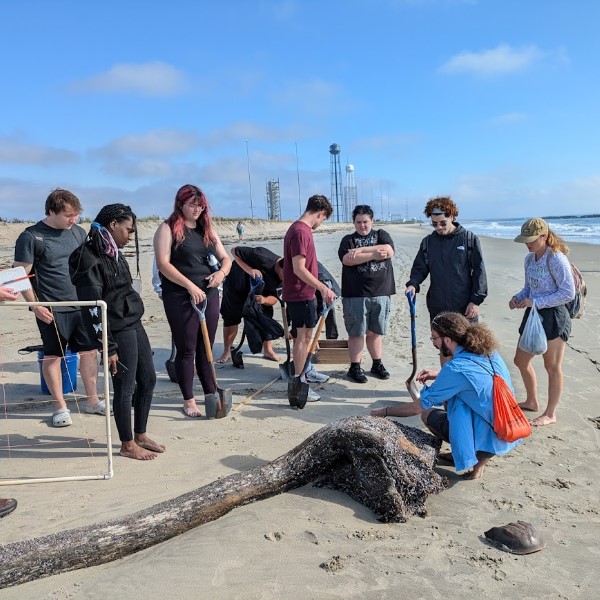
Wallops Island Beach
Marine Science Program
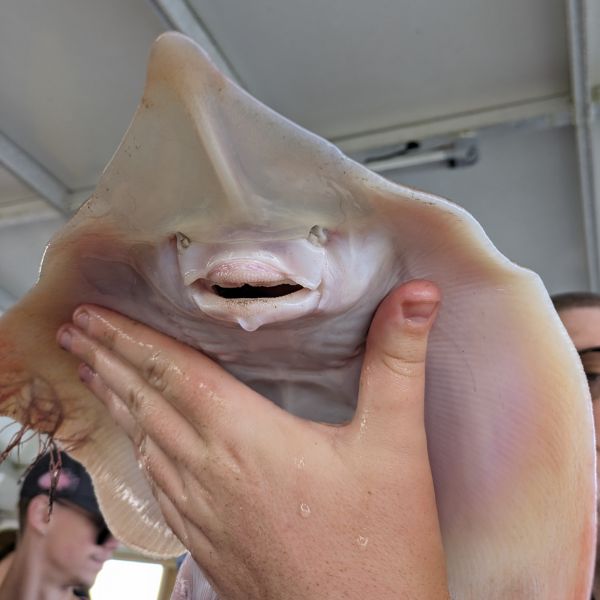
Clearnose Skate
Marine Science Program
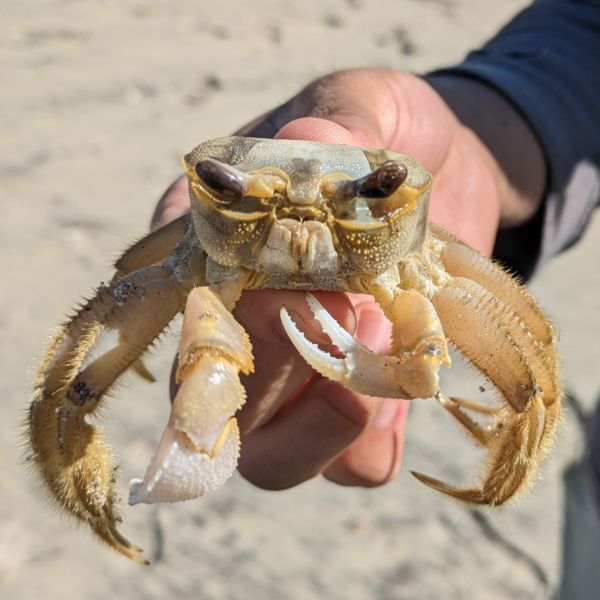
Ghost Crab
Marine Science Program
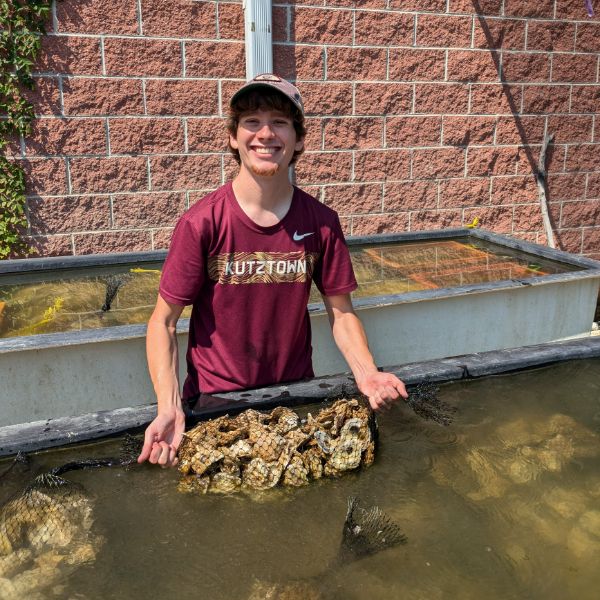
Horn Point Laboratory
Marine Science Program
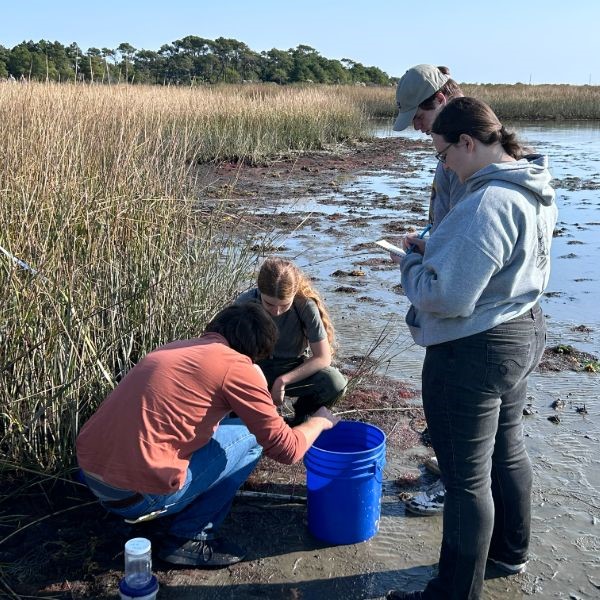
Chincoteague National Wildlife Refuge
Marine Science Program
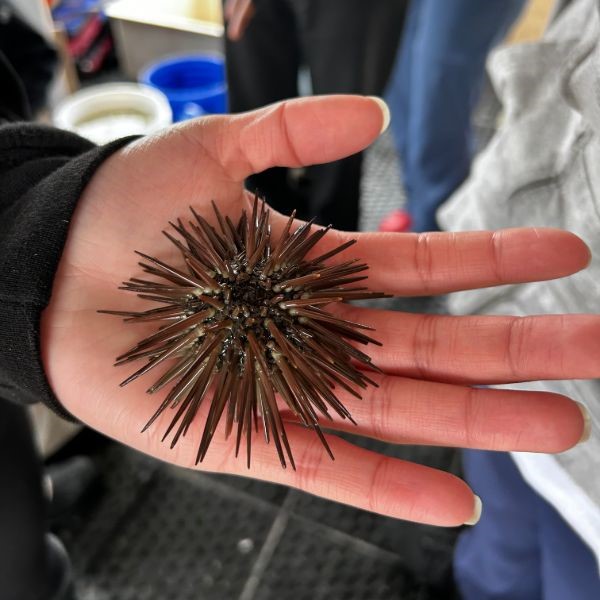
Sea Urchin
Marine Science Program
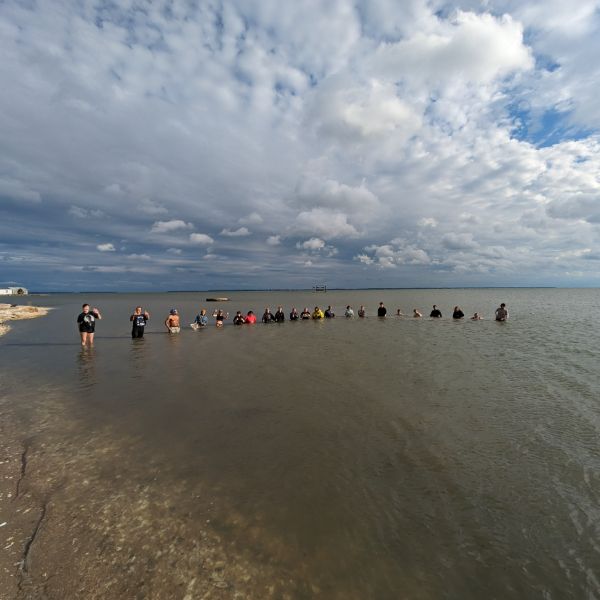
Seining at Greenbackville
Marine Science Program
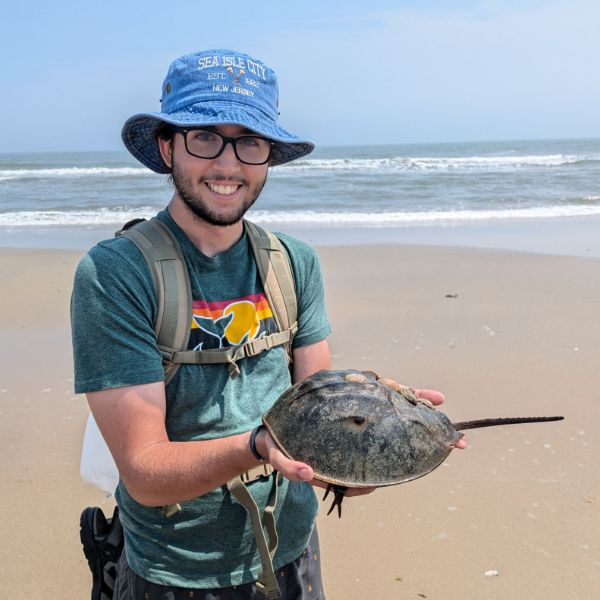
Horseshoe Crab
Marine Science Program
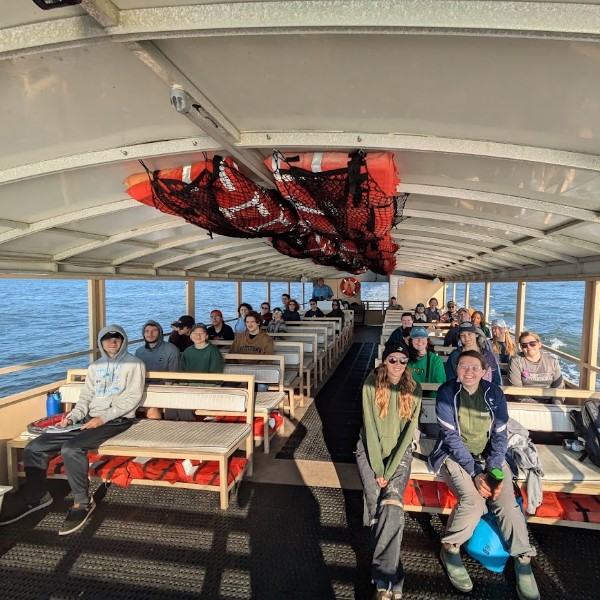
Boat Trip
Marine Science Program
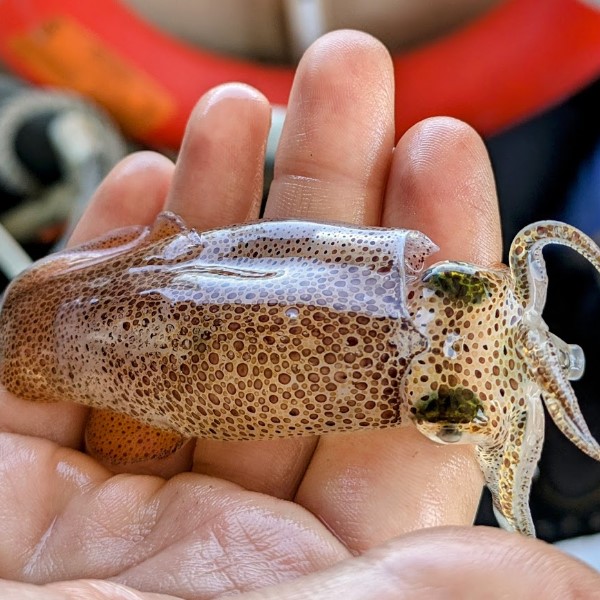
Brief Squid
Marine Science Program










Marine Science Degree Highlights
Whether you want to become a marine biologist or oceanographer, teach marine science or help restore coral reefs, the marine science program at Kutztown University is a robust, four-year program with guaranteed lab, research and field experience.
Program Highlights:
- Gain immediate lab experience in our on-campus Marine Science Lab.
- Get off-campus field experience at the Chincoteague National Wildlife Refuge, NASA's Wallops Island, Greenbackville Salt Marsh and Savage Neck Dunes Natural Area Preserve.
- Attend overnight field trips to Chincoteague Bay Field Station.
- Conduct your own research and present your findings at biological and geological professional conferences.
- Learn how to survey marine organisms using plankton nets, seine nets and otter trawls.
- Learn how to use cutting-edge, industry-standard equipment such as CTD sensor, light and oxygen meters, microscopes, YSI multi-probe water-quality meters, Ground Penetrating Radar (GPR), a vibracore sediment coring system and CHIRP Sonar system.
- Complete required internship/research experience.
Student Learning Outcomes
-
Marine Science (BS)
- Students who complete the Marine Science Bachelor of Science degree will use an oral format to effectively convey their scientific knowledge, interdisciplinary training, and research findings to peers, professional audiences, decision-makers, and/or the public.
- Students who complete the Marine Science Bachelor of Science degree will communicate in a written format to effectively convey their scientific knowledge, interdisciplinary training, and research findings to peers, professional audiences, decision-makers, and/or the public.
- Students who complete the Marine Science Bachelor of Science degree will demonstrate an ability to critically evaluate and synthesize scientific information from published literature and databases.
- Students who complete the Marine Science Bachelor of Science degree will collect and analyze data and/or design and execute experiments to answer marine-related scientific questions.
- Students who complete the Marine Science Bachelor of Science degree will demonstrate proficiency in laboratory and field techniques commonly used in Marine Science and necessary for graduate school and/or entry-level jobs in the field.
Explore our marine science pathways
| Concentration | Checklist |
|---|---|
| B.S. Marine Science: Biology | Click Here |
| B.S. Marine Science: Oceanography | Click Here |
| Minor in Marine Science | Click Here |
The Kutztown University Marine Science program has given me the tools to be the best fit career professional that I want to be in the real world. Through the Chincoteague Bay Field Station, many hours of undergraduate research and many classes, I got to learn so many unique things during my time at KU.
Kyle Krezdorn ‘20, Research Technician, The Skidaway Institute of Oceanography, University of GeorgiaMarine Science Degree FAQ
-
What can I do with a marine science degree?
Kutztown University is one of the best colleges for marine science because our B.S. degree prepares students for many career paths. You can explore careers in government, fisheries, marine biology, oceanography, marine engineering, seafloor mining and more.
Here are different job titles you can hold with a B.S. degree in marine science, along with their national salaries from the U.S. Bureau of Labor Statistics (2023). Keep in mind that the salaries listed below are for entry-level positions in the field.
- Biologist 1: $41,233
- Fisheries observer: $69,735
- Environmental Educator: $63,848
- Lab technician: $46,942
- Research technician: $46,222
- Park ranger: $43,030
- Research associate: $68,000
- Marine technician: $55,632
-
Do I need to go to graduate school to get a job in oceanography/marine biology?
No. Although our laboratory and field-intensive interdisciplinary core curriculum prepares students for graduate school, there are many entry-level jobs in the field for which our graduates are qualified.
-
How is KU one of the best colleges for marine science in a land-locked state?
The success of the marine science degree at KU, which has been around for more than 50 years, is linked to our involvement in the Marine Science Consortium/Chincoteague Bay Field Station (CBFS) in Wallops Island, VA.
The CBFS is our home away from home.
As a marine science major, you will get hands-on field experience through weekend field trips during the semester and required summer classes down at the CBFS.
There, you’ll be exposed to several different marine and coastal environments, use cutting-edge technology and contribute to active research in the fields of coastal marine geology and marine biology.
-
What career experience can I get before graduating?
Our marine science degree offers plenty of career experience that will help build your resume before graduation.
- Participate in local, national or international internships.
- Complete marine science based research, mentored by KU faculty.
- Take field trips to multiple marine environments off campus.
- Learn how to use oceanographic equipment.
- Perform data collection and water quality measurements.
- Attend professional conferences to present research and network.
- Join the marine science club and learn to care for fish and invertebrates in our salt water aquariums.
- Attend alumni presentations and other networking events.






